
Front Load vs Top Load Washer: Which Is Better for Your Family (and the Planet)?
Get all the information you need when it comes to front load vs top load washers!
Front Load vs Top Load Washer: Which Is Better for Your Family (and the Planet)?
Get all the information you need when it comes to front load vs top load washers!

How to Do Laundry in an Apartment (Without the Stress)
Learn how to do laundry in an apartment even without a washer. Smart, space-saving, and eco-friendly laundry hacks from the HeySunday team.
How to Do Laundry in an Apartment (Without the Stress)
Learn how to do laundry in an apartment even without a washer. Smart, space-saving, and eco-friendly laundry hacks from the HeySunday team.

Steam Washer: The Family-Friendly Guide to Cleaner, Healthier Laundry
Learn how steam washers sanitize better and why they're perfect for families seeking a cleaner, greener laundry routine.
Steam Washer: The Family-Friendly Guide to Cleaner, Healthier Laundry
Learn how steam washers sanitize better and why they're perfect for families seeking a cleaner, greener laundry routine.

Smart Washing Machines: Making Laundry Smarter, Simpler, and Greener
Learn how smart washing machines make laundry easier, more efficient, and eco-friendly for busy families.
Smart Washing Machines: Making Laundry Smarter, Simpler, and Greener
Learn how smart washing machines make laundry easier, more efficient, and eco-friendly for busy families.
Shop now
Laundry detergent sheets
Eco-Friendly Kitchen Cleaning Tips That Actually Work
Tired of juggling family life and endless dishes? Learn how to keep your kitchen sparkling clean the eco-friendly way using simple routines, natural ingredients, and sustainable swaps that really work.
Eco-Friendly Kitchen Cleaning Tips That Actually Work
Tired of juggling family life and endless dishes? Learn how to keep your kitchen sparkling clean the eco-friendly way using simple routines, natural ingredients, and sustainable swaps that really work.

Best Kitchen Gadgets for Busy Families in 2026
Check out our list of the top 2026 kitchen gadgets to transform your cooking space!
Best Kitchen Gadgets for Busy Families in 2026
Check out our list of the top 2026 kitchen gadgets to transform your cooking space!

How to Effectively Organize the Space Under Your Kitchen Sink
Check out our under sink organization ideas to keep your kitchen running its best!
How to Effectively Organize the Space Under Your Kitchen Sink
Check out our under sink organization ideas to keep your kitchen running its best!
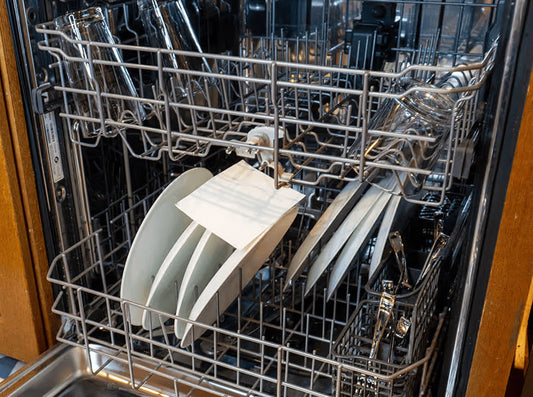
Best Dishwasher Detergent: The Eco-Friendly, Space-Saving Solution for Modern Kitchens
Discover why dishwasher detergent sheets are a win for your household and the environment!
Best Dishwasher Detergent: The Eco-Friendly, Space-Saving Solution for Modern Kitchens
Discover why dishwasher detergent sheets are a win for your household and the environment!
Shop now
Dishwasher sheets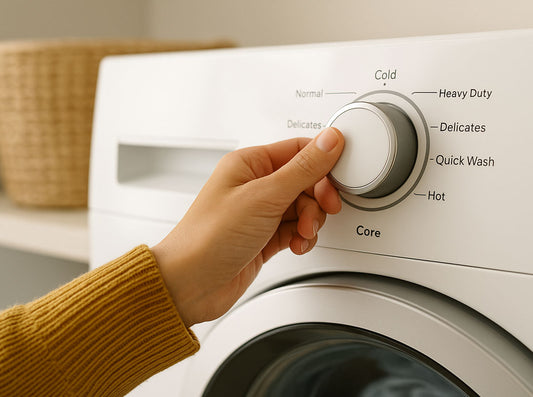
Cold Water Laundry: How to Save Energy, Money, and the Planet
Learn why cold water laundry is better for your clothes, wallet, and the planet.
Cold Water Laundry: How to Save Energy, Money, and the Planet
Learn why cold water laundry is better for your clothes, wallet, and the planet.
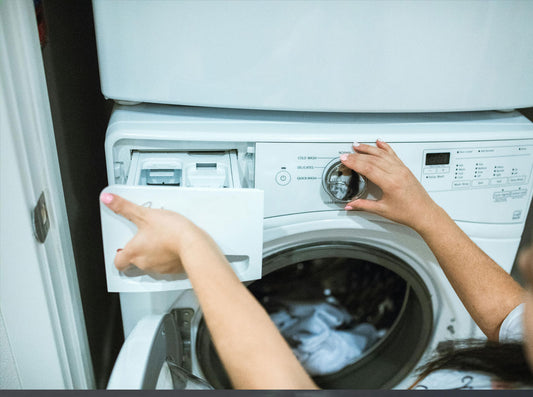
Microplastic Filter Laws: How They Affect Your Life and Laundry
New laws are coming into effect across the globe that are cracking down on microplastics. See how this will impact washing machines and your laundry routine.
Microplastic Filter Laws: How They Affect Your Life and Laundry
New laws are coming into effect across the globe that are cracking down on microplastics. See how this will impact washing machines and your laundry routine.

Greenest Laundry Detergent: Sheets vs Liquid vs Pods
We compared sheets, liquids, and pods to determine the greenest laundry detergent. Check out our findings!
Greenest Laundry Detergent: Sheets vs Liquid vs Pods
We compared sheets, liquids, and pods to determine the greenest laundry detergent. Check out our findings!

How to Save Energy and Water at Home: Smart Tips for Dishes, Laundry & More
Reduce your carbon footprint AND save money with these home energy and water saving tips.
How to Save Energy and Water at Home: Smart Tips for Dishes, Laundry & More
Reduce your carbon footprint AND save money with these home energy and water saving tips.
Shop now
Laundry detergent sheets
The Prevalence and Impact of Hard Water in the United States
Get tips on how to reduce hard water buildup to protect laundry and improve cleaning.
The Prevalence and Impact of Hard Water in the United States
Get tips on how to reduce hard water buildup to protect laundry and improve cleaning.
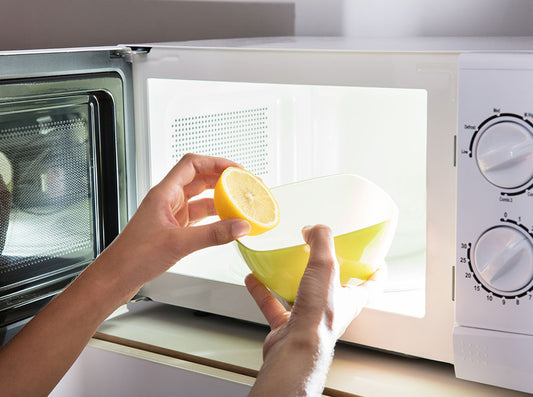
What TikTok Gets Right (and Wrong) About Cleaning
Found out which TikTok cleaning trends are actually useful and which ones could be doing more harm than good.
What TikTok Gets Right (and Wrong) About Cleaning
Found out which TikTok cleaning trends are actually useful and which ones could be doing more harm than good.
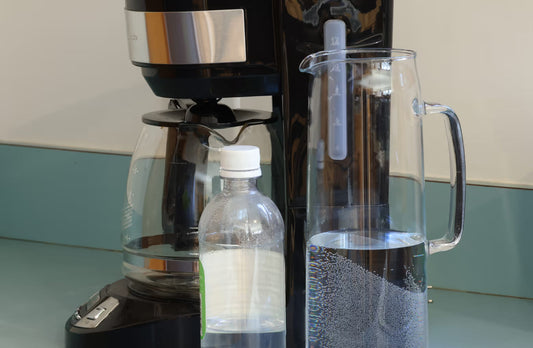
Why and How to Descale a Coffee Maker
Ever heard of descaling? Now you have! Here’s how to keep your coffee maker super clean.
Why and How to Descale a Coffee Maker
Ever heard of descaling? Now you have! Here’s how to keep your coffee maker super clean.

What are Gaskets and Why Do You Need to Clean Yours?
Cleaning your fridge and freezer gaskets is an important maintenance chore. We’ve got you covered with this helpful guide.
What are Gaskets and Why Do You Need to Clean Yours?
Cleaning your fridge and freezer gaskets is an important maintenance chore. We’ve got you covered with this helpful guide.
Shop now
Laundry detergent sheets
The Ultimate Guide to Family-Friendly Laundry Sorting Systems
Learn how to create a laundry sorting system that will make your laundry day a breeze!
The Ultimate Guide to Family-Friendly Laundry Sorting Systems
Learn how to create a laundry sorting system that will make your laundry day a breeze!

How to Organize Your Laundry Room: Clever Laundry Storage Ideas to Maximize Space and Style
Check out tips and tricks for organizing your laundry to save space with style.
How to Organize Your Laundry Room: Clever Laundry Storage Ideas to Maximize Space and Style
Check out tips and tricks for organizing your laundry to save space with style.

The Ultimate Family Vacation Packing List Every Mom Needs
Never forget to pack an item again with our ultimate family vacation packing list.
The Ultimate Family Vacation Packing List Every Mom Needs
Never forget to pack an item again with our ultimate family vacation packing list.

Small Bathroom Organization Ideas That Transform Tiny Spaces
Discover practical small bathroom organization ideas that maximize storage, reduce clutter, and create a more functional space.
Small Bathroom Organization Ideas That Transform Tiny Spaces
Discover practical small bathroom organization ideas that maximize storage, reduce clutter, and create a more functional space.
Shop now
Laundry detergent sheets